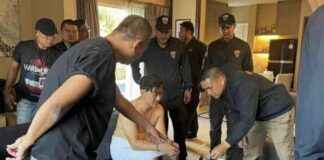The Complexities of Father-Son Relationships
Father-son relationships have long been a subject of fascination and exploration in psychology, literature, and popular culture. The dynamics between fathers and their sons can be incredibly complex, influenced by a myriad of factors such as upbringing, personality differences, societal expectations, and personal experiences. These relationships can range from close and supportive to strained and distant, with each pair navigating their unique bond in their own way.
One of the key factors that shape father-son relationships is the role modeling that occurs within the family unit. Fathers often serve as role models for their sons, shaping their views on masculinity, relationships, and the world at large. The way in which a father interacts with his son, communicates with him, and expresses emotions can have a profound impact on the son’s development and self-image. Positive role modeling can foster a strong bond between father and son, while negative behaviors can lead to conflict and misunderstanding.
Another important aspect of father-son relationships is communication. Effective communication is essential for building trust, understanding, and empathy between fathers and their sons. Open and honest dialogue allows both parties to express their thoughts, feelings, and needs, leading to a deeper connection and mutual respect. However, communication breakdowns can occur when there is a lack of understanding, misinterpretation of intentions, or unresolved conflicts. Learning to communicate effectively is a key skill that can strengthen father-son relationships and promote mutual growth and development.
The Impact of Fatherhood on Sons
The role of fathers in shaping the lives of their sons cannot be overstated. Fathers play a crucial role in the emotional, social, and cognitive development of their children, particularly their sons. Research has shown that positive father involvement is associated with higher academic achievement, better emotional regulation, and improved social skills in children. Fathers who are actively involved in their sons’ lives provide them with a sense of security, stability, and guidance that can have a lasting impact on their well-being.
Furthermore, the absence of a father figure can have negative consequences for sons, leading to a range of emotional and behavioral issues. Sons who grow up without a father may struggle with feelings of abandonment, low self-esteem, and a lack of male role models to emulate. This can manifest in various ways, such as academic underachievement, delinquent behavior, and mental health challenges. It is essential for fathers to be present and engaged in their sons’ lives to provide them with the support and guidance they need to thrive.
Navigating Conflict and Resolution
Conflict is a natural part of any relationship, including father-son relationships. Disagreements, misunderstandings, and differing perspectives are common occurrences that can strain the bond between fathers and their sons. How these conflicts are resolved can have a significant impact on the overall health of the relationship. Healthy conflict resolution involves active listening, empathy, and a willingness to compromise. Fathers and sons who can communicate effectively and work through their differences constructively are more likely to maintain a strong and resilient relationship.
However, unresolved conflicts can fester and create distance between fathers and their sons. Lingering resentment, unresolved issues, and unmet expectations can erode trust and intimacy over time. It is essential for fathers and sons to address conflicts openly and honestly, seeking to understand each other’s perspectives and finding common ground. Seeking the help of a therapist or counselor can also be beneficial in navigating complex conflicts and fostering healing and reconciliation.
In conclusion, father-son relationships are nuanced and multifaceted, shaped by a variety of factors such as role modeling, communication, and conflict resolution. By fostering open communication, positive role modeling, and healthy conflict resolution strategies, fathers and sons can cultivate strong, meaningful relationships that endure the test of time. Through mutual respect, empathy, and understanding, fathers and sons can navigate the complexities of their relationship with grace and compassion, forging a bond that enriches both their lives.




















